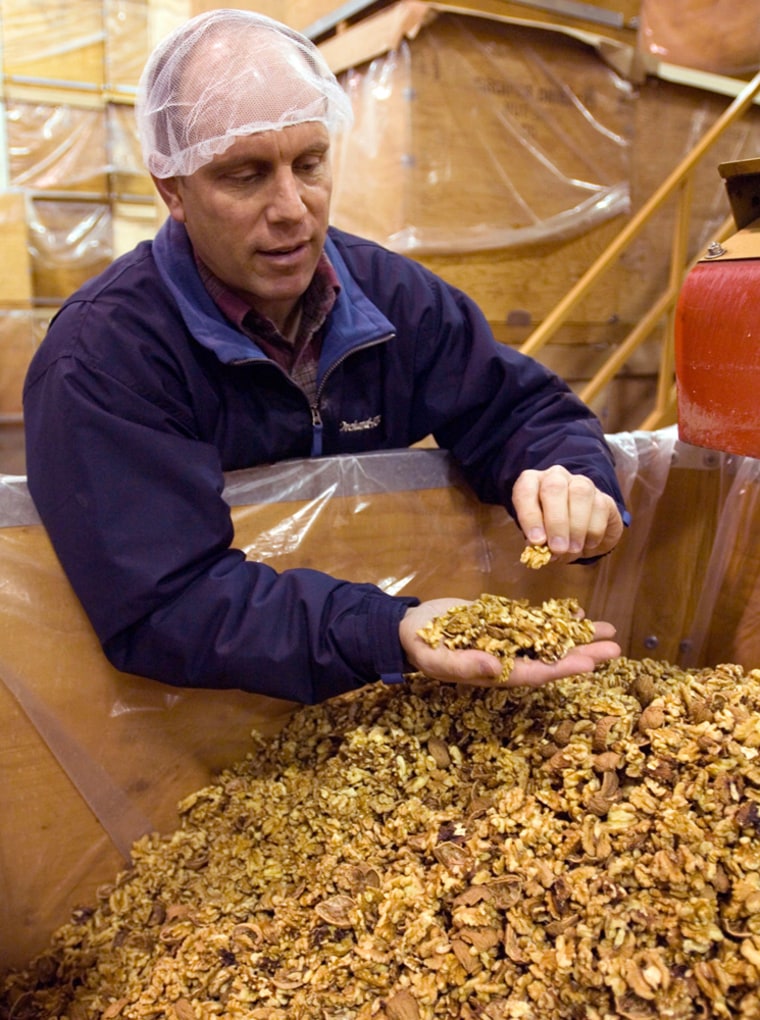For generations, Vito Chiesa’s family has grown peaches for canning, but the Central California farmer plans to bulldoze his entire orchard if he can’t get enough workers to hand-pick the fruit.
That’s the message Chiesa and other growers will take to Washington this week, as they fly in to campaign for a new Senate bill that would create a guest worker program to grant as many as 1.5 million farm laborers legal status to keep working in the United States.
A similar proposal was defeated last year after legislators stonewalled immigration reform. But farm lobbyists are betting the stand-alone bill, co-sponsored by Sen. Dianne Feinstein, D-Calif., and Sen. Larry Craig, R-Idaho. and set to be introduced Wednesday, will find new supporters in the Democrat-controlled 110th Congress.
Growers say aggressive security patrols along the U.S.-Mexico border have created a labor shortage that’s left apples hanging on trees in Washington state, marred berry harvests in Oregon and delayed the onion harvest in Texas. The American Farm Bureau Federation has warned labor shortages could cause $5 billion in losses to the agriculture industry.
The economic threat is particularly acute in the nation’s top agricultural state where more than one-third of the nation’s farmworkers are employed, California farmers say. Last summer, a quarter of the pear crop in rural Lake County rotted on the trees when pickers never showed up, said Toni Scully, a pear packer there.
“Throughout the summer, farmers were cobbling together workers to meet their immediate needs,” said Jack King, national public affairs manager for the California Farm Bureau Federation. “When we failed to push something through last year, we vowed we’d be back.”
The bill would create a pilot program allowing people who have worked in agriculture for at least 150 days a year for three years, or 100 days per year for five years, to apply for a green card. It would grant legal status to no more than 1.5 million workers over five years, some of whom could apply for citizenship.
The measure passed the Senate last year as part of a larger immigration bill, but failed when the House and Senate deadlocked over broader reforms. It will likely face opposition from conservative groups like the Heritage Foundation, an influential Washington think tank that argues the guest workers would attempt to bring their families with them, causing an extra burden on social services that would cost taxpayers billions of dollars. Estimates of the bill’s fiscal impact vary widely.
Growers and farm worker advocates don’t agree on how to fix a system that has allowed an estimated 12 million immigrants to enter the country illegally. But both say the beginning of a solution is the Agricultural Job Opportunities, Benefits and Security Act of 2007, dubbed “AgJobs,” which would speed up worker approvals under the current H2-A program, a federal contract that brings agricultural workers to the U.S. to fill jobs few Americans will take.
Several hundred temporary laborers already come to California legally each year on H2-A visas. But since the 1960s, when the last guest worker program between the U.S. and Mexico ended amid allegations of worker mistreatment, a majority of workers have crossed the border without documents.
Nearly all of California’s farmworkers were born in Mexico, and 57 percent of the labor force lacks authorization to work in the U.S., up from 9 percent in 1990, according the state division of the Environmental Protection Agency.
“Virtually everybody agrees that agriculture is an industry that cannot do well without the undocumented worker,” Feinstein said in an interview with the Associated Press. “And the people are coming to the realization that there won’t be a comprehensive immigration bill. The first step was taken with the border security bill. (A guest worker program) is the next logical step.”
In the meantime, Chiesa has already started pulling up some of his peach trees and replanting rows of almond and walnut trees, which can be harvested by machines instead of people.
“When I grew up, everything was peaches,” said Chiesa, whose family has farmed in Hughson, a rural community along the Tuolumne River about 15 miles southeast of Modesto, since the 1950s. “But we’re getting rid of them. It comes down to labor — my stomach can’t put up with the uncertainty.”
Chiesa’s brother, Kevin, pulled out his own peach trees to open a walnut processing plant, where he now employs about 50 people year-round. Alicia Juarez, who oversees a walnut-sorting machine there, said she much preferred the steady paycheck of her current position to working in Central California farms, sizing and sorting peaches in the field.
“The salary’s better here than in the field. There, you’re in the sun all day and you’re carrying heavy things,” said Juarez, a legal U.S. resident born in Guanajuato, Mexico. “Not everyone can get these jobs, though, and I know lots of people who would apply to be guest workers.”
